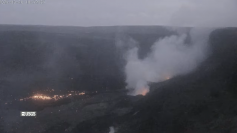The end of the pandemic in the United States is in sight, even if it will still take us a little while to reach it. As of this writing, cases are still rampant, and the situation is actually about as dire as it's been. However, with a new presidential administration focused more on federal efforts to contain the virus, and with vaccines rolling out slowly but surely, there is genuine hope that by the summer or fall real recovery will be in effect.
This is most important for individuals around the country. All of us are desperate to get back to our ordinary lives, not just for fun or convenience but as a matter of personal wellness. However, progress toward recovery is also monumental for the business community and for state and national economies. As life returns to normal, economic activity should pick up, and people, businesses, and entire industries will begin to make themselves whole. This won't happen all at once though, nor will it happen the same way in every place.
In this piece, we want to delve into that point a little bit more, and identify a few states around the country that appear to be particularly well positioned for pandemic recovery.
North Carolina
North Carolina's response to the coronavirus has been mixed. The state has intermittently excelled and struggled at managing cases - which really puts it bout in the middle of the pack nationally speaking. It still stands out as a state in position for a strong recovery though, largely because it's becoming more of a startup and small business hub in general. For years now, North Carolina has featured prominently on lists of states attracting and producing young talent, and there's no reason for the pandemic to have interrupted this in the greater scheme of things. The state should pick up where it left off.
The data backs this notion up, too. Per a Yahoo! Finance look at metro recovery following COVID-19, Raleigh and Durham - two of North Carolina's most important economic cities - are in fairly good shape compared to metro areas around the nation. The report looks at cities in terms of population density and "levels of educational attainment," and both cities come out on the positive side of the analysis. North Carolina is the only state with multiple cities identified in this position.
New York
New York can't make the same claims as North Carolina when it comes to low(-ish) population density in cities, or an up-and-coming vibe. However, the state does have a more active startup and new business culture than it sometimes gets credit for. Just a few years ago, a write-up on New York entrepreneurship by TheNextWeb noted that in particular the tech startup scene has become a thriving local industry unto itself - with a job growth rate of some 30% over the course of the 2000s.
This is something that has developed over time, and is largely a result of the state's support of startup processes. New York has encouraged tech development through extensive resources for new company founders, as well as ample financial investment in the industry. Additionally, from a logistical standpoint, the process of starting a business in New York has been kept simple, whereas in some states it has become less so. Founders can register new LLCs with the state in just hours' time through the completion of a few online forms, which takes a lot of the difficulty out of the work of launching a company.
As with North Carolina, these conditions are fairly well cemented, and shouldn't change following the pandemic. Throw in the fact that New York also has as much experience dealing with the pandemic as any other place in the world, and recovery in the state should be strong.
Vermont
Where Vermont is concerned, optimism about pandemic recovery has less to do with industry conditions or startup culture, and more to do with COVID-19 response. This smaller New England state is not as well known for new businesses or innovation. But its terrific capability in managing the difficult circumstances of the past year suggest that it should be one of the first states to really "return to normal" - which in turn will likely help local businesses to recover more efficiently than those in many other states.
Last fall, an assessment by Dr. Anthony Fauci on The Hill singled Vermont out as "doing the best job containing COVID-19," with the doctor suggesting it should be "a model for the country." And now that vaccines are beginning to roll out, an update on distribution at U.S. News & World Report listed Vermont as one of the more effective states in this regard as well (though a few others are out ahead). In other words, the state is setting an example in both containment and vaccination. This should pave a short path back toward ordinary life, and thus a properly functioning economy.
Hawaii
And then there's Hawaii, which we're singling out for one clear, simple reason: tourism. Our look at 'Hospitality Industry Trends to Look Forward to in 2021' mentioned that travel is expected to pick up toward the end of the coming spring. At that time, many are expected to take long-awaited trips, and there is already visibly increased demand for "bookings to the Caribbean and Maldives." This is due to "private settings and undisturbed atmosphere" - but it's also in part that people are simply ready to enjoy carefree, tropical getaways after what will have been 18 months of unusual stress and isolation.
Our bet is that Hawaii makes it onto the same tourism lists in time. It's a very appealing tropical option for many in the U.S., and as soon as it begins to look like a reliably safe option as well, it's going to welcome a lot of travelers. Given how much tourism means to the Hawaiian economy, this should help the state to become one more that recovers quickly.






